How England brought the ‘oomph’ to stun Ireland in Six Nations epic
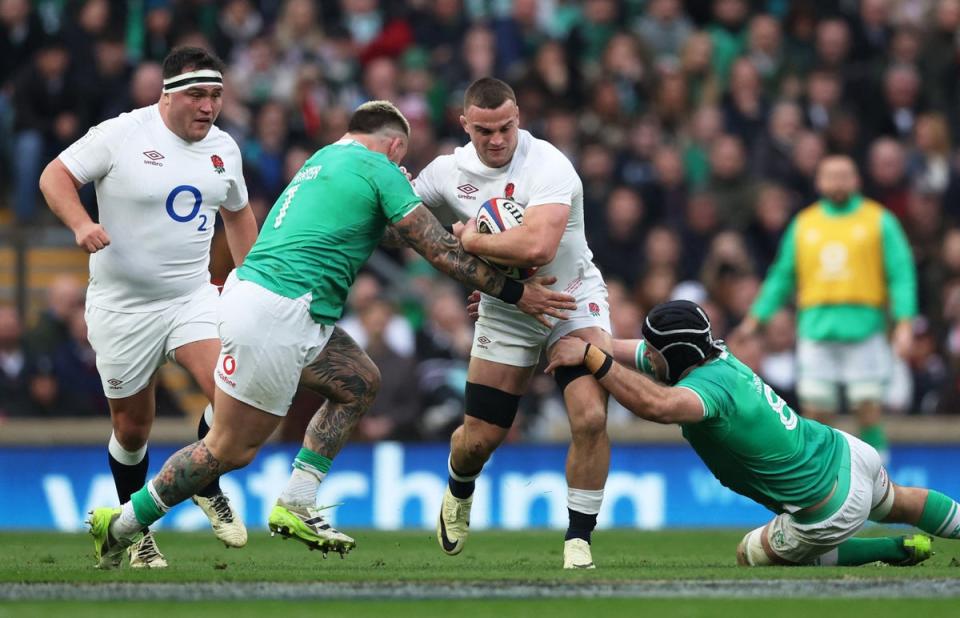
“It’s a lovely word, that. It’s George Martin in a nutshell.” Jamie George had just been asked about England’s returning second-row star bringing added ‘oomph’ to the side during the shock victory over Ireland and liked what he heard.
The England skipper enjoyed what he saw from the 22-year-old on the Twickenham pitch even more. While the new blitz defence being implemented by Felix Jones had shown positive signs during the opening three rounds, England’s largely stagnant attack and lack of physicality had been causing concern even during the victories over flawed Italy and Wales sides, let alone in the underwhelming Calcutta Cup loss to Scotland that followed.
A game against all-conquering, unstoppable Ireland en route to their inevitable back-to-back grand slams didn’t seem to offer much hope of a bright new dawn but, out of nowhere, came the best performance and result of the Steve Borthwick era.
That punch and, yes, that ‘oomph’ that had been so sorely lacking was suddenly there in abundance at a rocking Twickenham Stadium. Martin – the quiet man of the England squad who burst to prominence with a superstar display against South Africa in the World Cup semi-final – was thrust back into the limelight after missing the start of the Six Nations with a knee injury and making just a cameo appearance from the bench against Scotland. He delivered crushing hit after crushing hit, helped England stunningly sack the Irish lineout and impressed at scrum-time to lay the platform for Marcus Smith’s last-gasp drop goal that snatched the most dramatic of 23-22 wins.
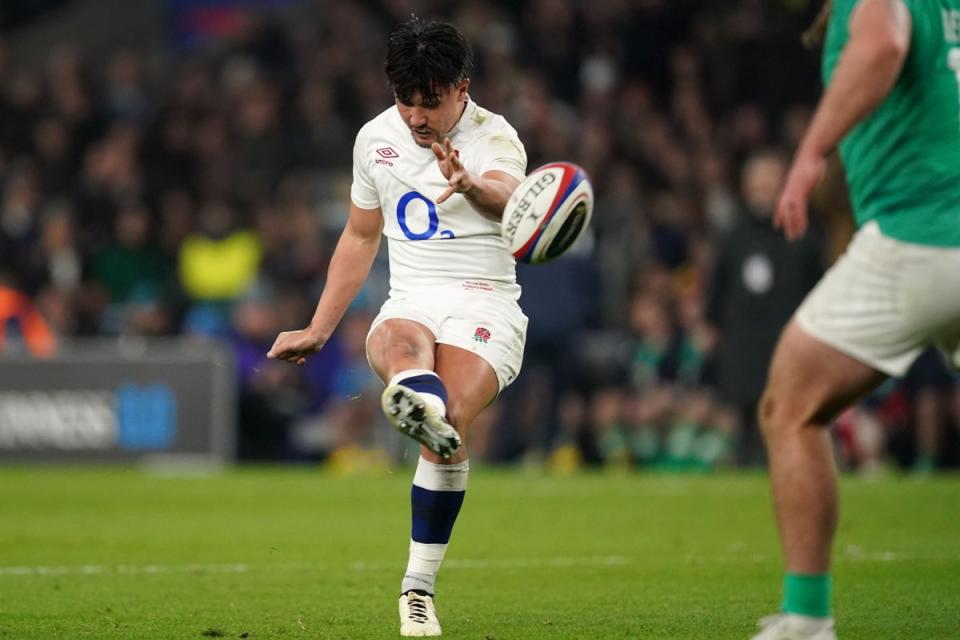
“The lineout gurus had a great plan around what we wanted to get after and I thought we scrummed well today,” said a beaming George in his post-match press conference. “When you play Ireland, there’s increased focus around being really tight and assured at the breakdown – I thought we were that.
“George Martin came into the team having not played a huge amount of rugby over the last few weeks and belted people. He led the way in that respect. He’s a man of few words but when he goes out and performs like that, he's a real leader in this team.”
Borthwick’s intention had been clear in his team selection when he chose to start three locks in the form of Martin, Maro Itoje and Ollie Chessum – with the latter lining up at blindside flanker. They would target Ireland’s set-piece, in the way South Africa and New Zealand had done at the World Cup, and match their in-form visitors physically.
The Irish lineout had a tournament-high 95 per cent success rate heading into the clash, with replacement hooker Ronan Kelleher even a perfect 10 from 10, but England’s trio of engine-roomers disrupted this supposed strength time and again, often spoiling ball, sometimes outright stealing it and at the very least, holding firm in the defensive maul.
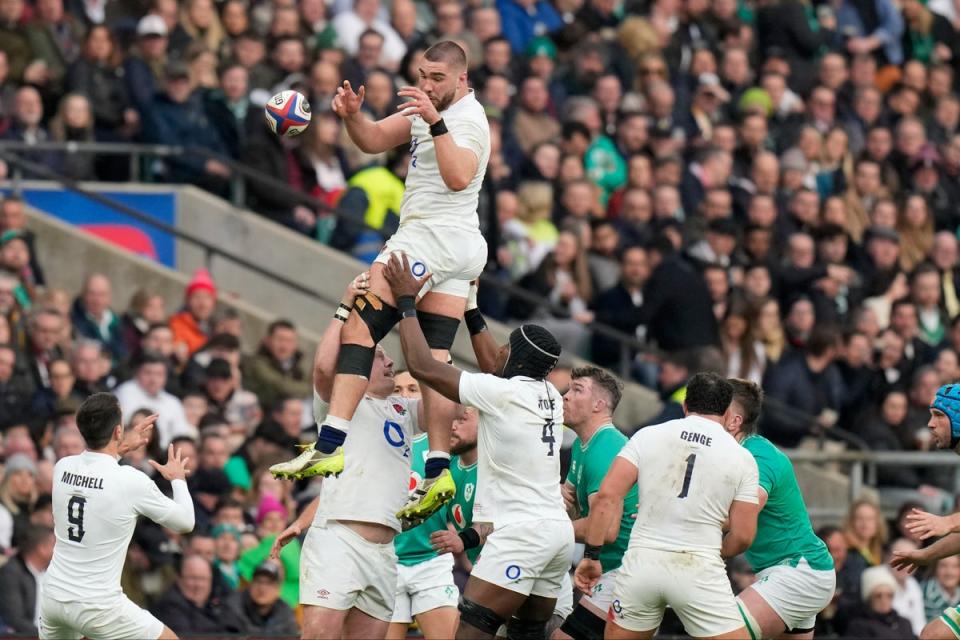
The scrum also won multiple penalties as Ireland were denied the clean set-piece platform they had so thrived off in their opening three victories, while the home attack finally had added power to punch holes in the Irish defensive line.
Martin’s carrying ability played into that but, most pleasingly for England, other members of the new generation of future stars – rather than the old guard – also stepped up in style. Ben Earl had already been England’s best player in this year’s championship but his latest tour-de-force performance was his magnum opus.
His 19 carries for a mammoth 140 metres were both game highs, as were his 84 post-tackle metres as he burst through contact and kept his legs churning for 80 minutes. He has become a world-class No 8 and was good value for his second-half try when he powered over the line to put England in front. His eight defenders beaten was the second most in a single game for England since the stat was first measured by Opta in 2009 – a figure only bettered by Billy Vunipola, who beat nine, also against Ireland, in 2016.
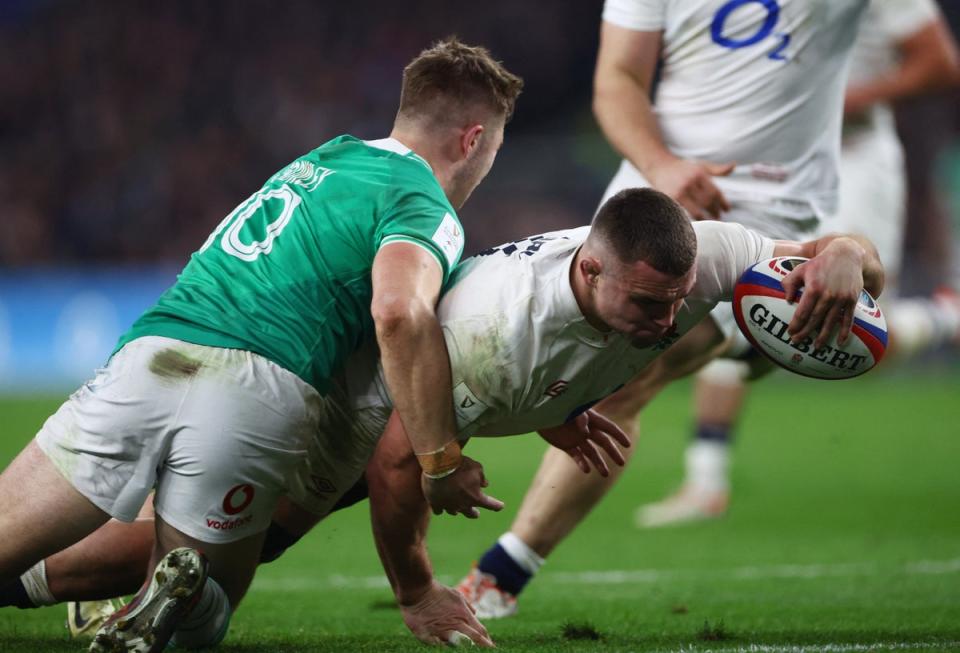
Speaking of Vunipola, for the first time since he, his brother Mako Vunipola and Manu Tuilagi were in their heyday, England looked like they had the physicality with ball in hand to finally challenge world-class defences. Ollie Lawrence knocked the rust off following his forgettable return against Scotland a fortnight ago to provide the sort of crunching go-forward he does at club level for Bath week-in and week-out. Can England finally dream of having solved their longstanding, Tuilagi-shaped problem in the No 12 jersey?
Martin and Lawrence also led the way defensively with 14 successful tackles each, while Immanuel Feyi-Waboso – on his first international start – showed exactly why he is so highly rated as the Exeter wing consistently got over the gainline and was never knocked back in the tackle.
‘Oomph’ through the middle finally opened up space for England to go wide as the Lawrence and George Furbank tries showed exactly what this attack is capable of when it clicks. This was all predicated on quick ball and accurate decision-making coming from scrum-half and Alex Mitchell delivered that perfectly.
Perhaps his importance to the side wasn’t truly understood until he was injured for the round three contest with Scotland and England completely stagnated. He was back with a bang and, truthfully, the drop-off when Danny Care came on for his 100th cap was stark. Care has been a great servant to English rugby but at the age of 37, and with his century of appearances now banked, perhaps it is time for the veteran to raise his bat and depart the scene.
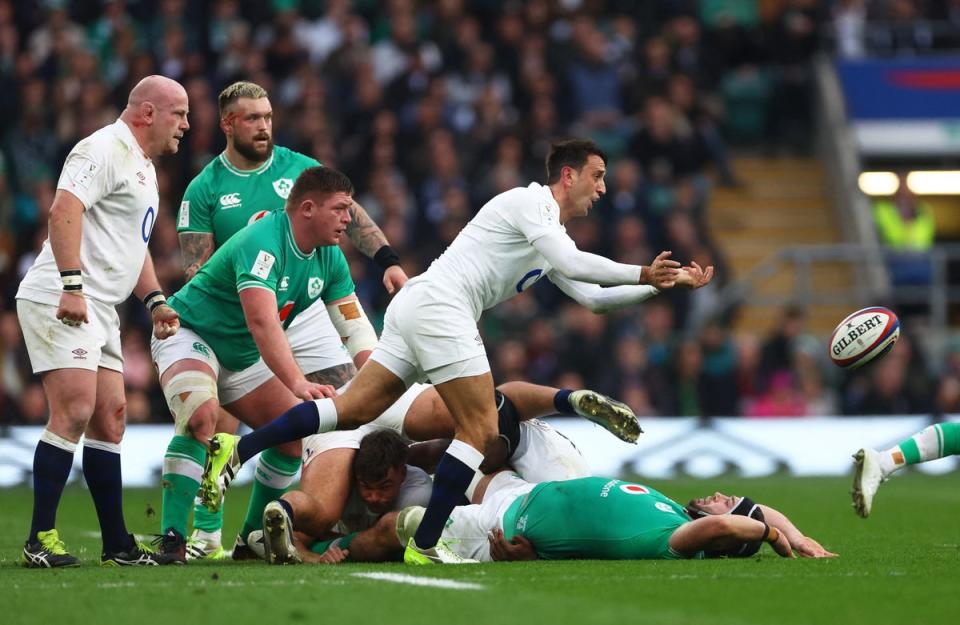
Skipper George was certainly effusive in his praise of Mitchell, saying: “He's a real high-quality, world-class player in my eyes. As sharp as there is around the breakdown. We spoke about how we wanted to move the ball fast today, spoken about how we wanted to move the ball more in attack and thought he was at the heart of that.”
Of course, one swallow does not a summer make and, as impressive as the manner of this victory was, an England side that seemed within striking distance of a crisis just a fortnight ago are not suddenly the best team in the world. However, the signs of what Borthwick and co are trying to do were at last made clear.
The next generation delivered a statement and England finally brought the ‘oomph’. That could carry them a long way and with the new-found power heading to Lyon to face a France team in turmoil next week, this could yet end up as a Six Nations to really remember for the men in white.
